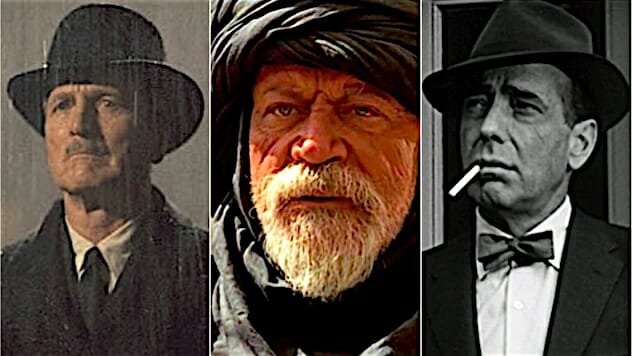5 Great Last Performances from 5 Great Actors

Robert Redford may be undecided about whether or not his role as a friendly senior-aged bank robber in director David Lowery’s new dramedy The Old Man & the Gun will be his last acting work, but nonetheless, the announcement got us thinking about the final big screen roles of other film legends.
Humphrey Bogart, The Harder They Fall (1956)

Underneath Bogie’s hardened exterior was always a deep sadness that seemed on the verge of revealing itself. That’s why his performance in Casablanca is as iconic as it is, because it encapsulates the archetype of the seemingly emotionless man’s man who’s yearning for love on the inside. His final role before succumbing to throat cancer was the perfect culmination of this persona, an ex-sports writer tasked with exploiting an ignorant boxer (Mike Lane) in order to make a lot of money for a corrupt promoter (Rod Steiger), only to gradually come face to face with the guilt of his exploits, in the underrated boxing drama The Harder They Fall. The script was based on a novel by Budd Schulberg, who, with his work for On the Waterfront and A Face in the Crowd, never shied away from showing America’s blunt acceptance of corruption and moral decay, but always held hope for one good person who would sacrifice it all in order to maintain a standard of decency. Bogie plays that character here, showcasing a subtle arc that never grandstands his changing morality, his guilt obviously hardening as he continues to con everyone around him for his payday. His turn into being decent and righting wrongs is subtle and refreshingly un-heroic. I wouldn’t be surprised if George Clooney studied this performance for Michael Clayton.
- Curated Home Page Articles By Test Admin October 21, 2025 | 3:10pm
-

- Curated Home Page Articles By Test Admin October 21, 2025 | 2:57pm
- Urls By Test Admin October 21, 2025 | 2:57pm
- Curated Home Page Articles By Test Admin October 21, 2025 | 2:55pm
-

-

-

-

-

-

-

-

-

-

-

-

-

-

-

-

-

-

-

-

-

-

-

-

-

-

-

-

-

-

-

-

-

-

-








































